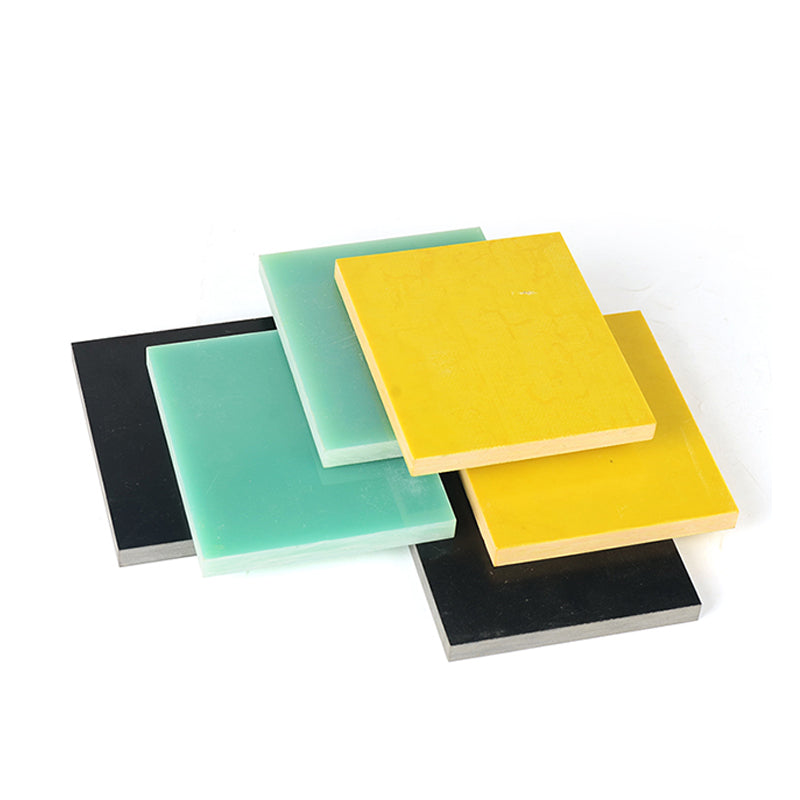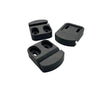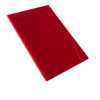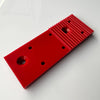Unveiling the Potential of PPS Plastic: A Comprehensive Guide to Its Multifaceted Applications
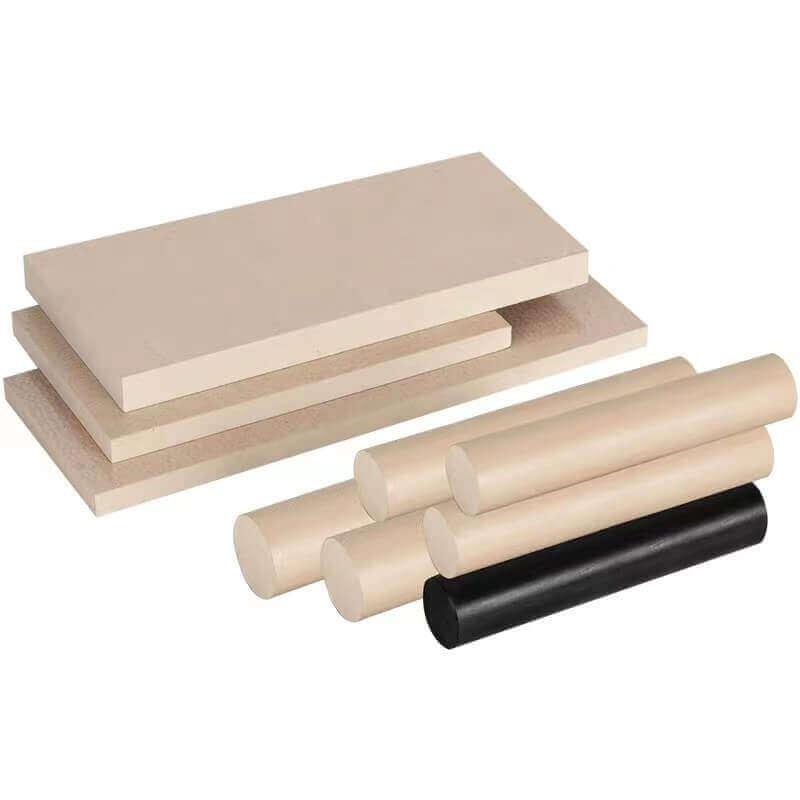
Polyphenylene Sulfide (PPS) plastic is an advanced high-performance engineered thermoplastic increasingly gaining attention for its wide range of potential applications across various industries. With exceptional thermal stability, chemical resistance, mechanical strength and flame retardancy, PPS offers distinctive properties setting it apart from common plastics and polymers.
🎉🎉🎉Limited Time Offer Use code: QR4GNY08SHVR at checkout and enjoy a special discount on your entire order! 👉PPS board
As major sectors like manufacturing, automotive, aerospace, electronics, semiconductors, healthcare and emerging technologies such as 3D printing grow, the demand for specialized materials to withstand high temperatures and chemically harsh conditions will continue to rise. This brings the spotlight on PPS plastic with its unique capabilities and versatile usability enabling new applications as well as sustainability benefits.
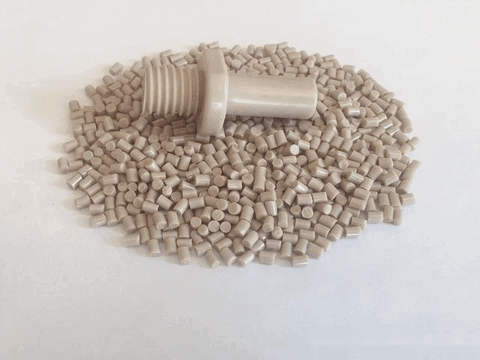
Understanding PPS plastic from its fundamental composition to the diverse current and future applications reveals the immense promise and possibilities of this material. This guide serves as a comprehensive reference into what makes PPS distinctive, its myriad uses across different domains and why it may be an ideal material choice for pushing performance boundaries.
Understanding PPS Plastic
Polyphenylene Sulfide, commonly abbreviated as PPS plastic, belongs to the specialized subgroup of high-performance engineered plastics known as high-heat thermoplastics. Its molecular chains consist of aromatic benzene ring structures linked together by sulfur bonds (-S-) leading to exceptional thermal stability and chemical resistance properties.
Some key properties and material characteristics of PPS plastic include:
- Extreme heat resistance: Retains structural integrity with mechanical strength up to 275°C with short term peaks of even higher temperatures. Glass transition temperature exceeds 85°C.
- Chemical resistance: Highly resistant to most mineral and organic acids, bases, oxidation and hydrolysis even at elevated temperatures.
- Flame retardancy: Rated as UL94 V-0, the highest flame retardancy classification indicating self-extinguishing properties.
- Low moisture absorption: Moisture absorption below 0.1% allowing dimensional stability across humidity fluctuations.
Additionally, PPS offers durability, dimensional stability across temperature fluctuations, good hardness levels coupled with tensile strength, and low smoke emissions when exposed to heat or fire.
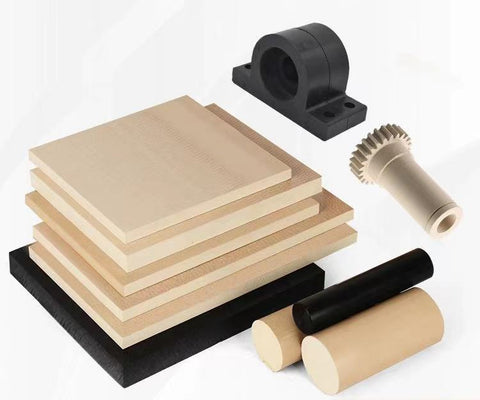
PPS Plastic in Various Industries
PPS Plastic: Revolutionizing Industries with High-Performance Applications
Manufacturing Industry: Harnessing the Strength of PPS Plastic
Machine Housings and Robotics
The manufacturing industry greatly benefits from the unique material properties of Polyphenylene Sulfide (PPS) plastic. This high-performance thermoplastic is ideal for creating injection-molded enclosures for motors, compressors, pumps, and valves. These applications often involve handling hot fluids, where PPS plastic's ability to dissipate heat becomes crucial. Additionally, in the realm of advanced robotics, PPS is increasingly used for making joints, pivots, and gears. These components sustain high temperatures, enabling cutting-edge robotic applications where durability and heat resistance are paramount.
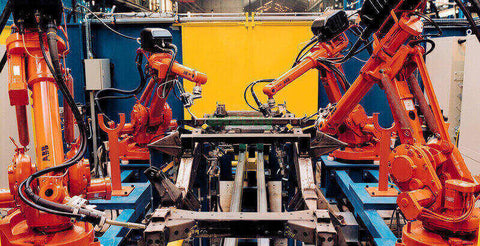
Automotive Industry: PPS Plastic in High-Demand Applications
Under-the-Hood Components and Exterior Fittings
In the automotive sector, PPS plastic's heat, chemical, and dimensional stability make it a preferred choice. Under-the-hood components such as air induction systems, fuel handling parts, circuit boards, and sensor housings benefit significantly from these properties. Furthermore, PPS plastic is also utilized in exterior fittings. Components like headlamp sockets, mirror brackets, and various electrical fittings, including connectors, are made from PPS due to its robustness and ability to withstand harsh environmental conditions.
Aerospace Industry: PPS Plastic's Role in Aviation
Aircraft Ducting and Interior Brackets
The aerospace industry, known for its stringent material requirements, also employs PPS plastic. Aircraft ducting components, including air management ducts, joints, and tubes used for hot oil and pneumatic lines, are often made from PPS. This is due to its ability to withstand continuous high temperatures and exposure to organic solvents. Additionally, PPS is used in making interior brackets for panels, mirrors, and luggage holds. The light yet durable nature of PPS plastic makes it ideal for these applications, where weight reduction without compromising strength is essential.
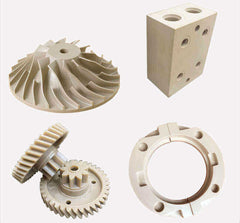
The Versatile and Reliable Nature of PPS Plastic
In conclusion, the versatile and reliable nature of PPS plastic makes it a standout choice in various industries. Its ability to perform under challenging conditions, such as continuous high temperatures and exposure to harsh chemicals, translates into practical, niche applications. These applications demand not only reliable functionality but also longevity and safety, which PPS thermoplastic consistently delivers.
The Versatility of PPS Plastic
A deeper look at PPS plastic's properties portfolio reveals remarkable versatility facilitating diverse uses across technology domains and engineering sectors.
Mechanical Engineering
Precision-machined PPS plastic stock shapes like rods, plates and tubes find growing uses in mechanical engineering realms. Wear bands, bearings, bushings, valves, compressor vanes are some examples. 3D printed custom PPS parts open new design possibilities too.
What makes the material especially suitable across such diverse domains comes down to key advantages defined by its intrinsic properties:
- Temperature resistance: Continuous high temp functionality widens application scope.
- Chemical resistance: Enables deployment in acidic/alkaline environments.
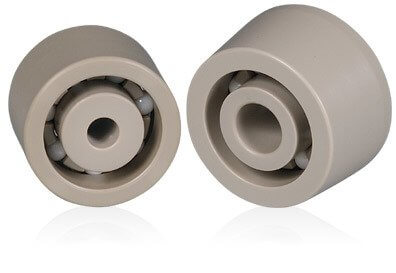
Innovative Applications of PPS Plastic
While currently dominating high-performance niches, Polyphenylene Sulfide plastic shows immense promise for meeting future needs through constant innovation.
Additive Manufacturing
Also known as 3D printing, this disruptive technology allows complex customized plastic parts. PPS offers heat resistance suiting hottest 3D print methods with reinforced fillers improving strength. Lightweight drones and aerospace brackets showcase 3D printed PPS use.
Market Growth
Forecasts predict the global market for PPS compounds to exceed $3.5 billion by 2026. Key factors include the electronics and automotive sector along with trends like miniaturization, higher operational temperatures and specialized plastics [1]. This generates positive outlook for PPS plastic industry growth.
Through this expansive guide into PPS plastic spanning from its fundamental science to niche applications and emerging trends, the versatility and immense potential of this material comes to the forefront.
While traditional metals and alloys fail to offer balanced properties in demanding niches, the high thermal stability, chemical resilience and robust mechanical performance makes PPS a versatile alternative prompting innovation across major industries like automotive, aerospace, electronics, machinery alongside promising domains from 3D printing to advanced mobility.
Rising above preconceptions about plastics being generic commodities, the distinctive profile of Polyphenylene Sulfide serves as a specialized high-performance thermoplastic punching above its weight class owing to exceptional material qualities. Continued research and progress in specialized plastics unlocks newer applications benefiting end-use customers with reliable products while boosting sustainability and commercial scope for materials like PPS plastic.
The unique sweet spot offered by PPS plastic truly reveals a multifaceted material ripe for adoption in engineering domains where unrelenting conditions preclude traditional materials. As industries march forward in advancing product innovation cycles, Polyphenylene Sulfide plastic promises to fulfill emerging needs as well as application horizons not yet envisioned today.
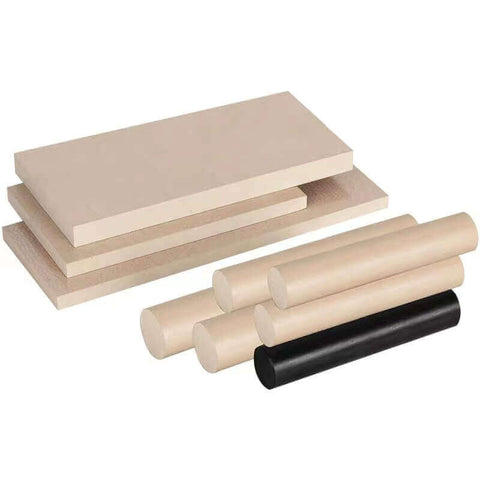
We invite you to explore more about PPS plastic including technical specifications for the diverse grades suited for target applications. Get in touch with our expertise to understand how PPS can potentially meet your needs or even open possibilities previously unseen. Let us advance innovation together leveraging specialized materials like PPS plastic!
🎉🎉🎉Limited Time Offer Use code: QR4GNY08SHVR at checkout and enjoy a special discount on your entire order! 👉PPS board
-
Posted in
beeplastic, pps applications, pps guide, pps manufacturing, pps plastic, pps properties

